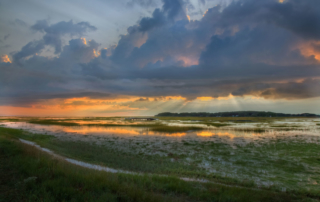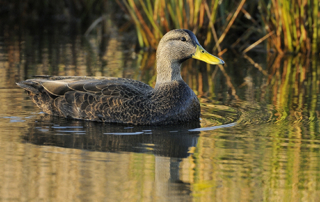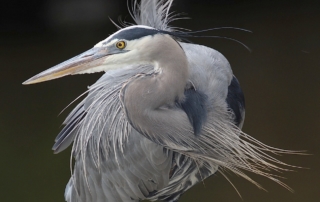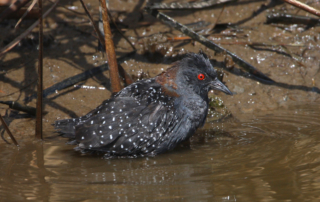Species in the News
Saltmarsh Sparrow in the New York Times Saltmarsh Sparrows nest in high marsh grasses just above the mean high tide line. They have naturally adapted to occasional flooding events; eggs can survive short periods of inundation and young birds often climb to safety in the grass above the nest. However, more than a foot of [...]









